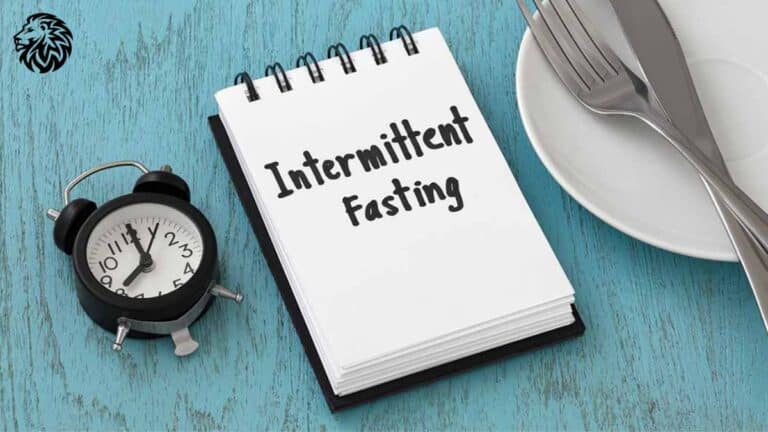The Basics of Intermittent Fasting
Understanding Intermittent Fasting
So, you’ve heard about intermittent fasting (IF) and are wondering what all the fuss is about? Well, it’s all about giving your body a breather from munching and allowing it to switch gears—from burning up those takeout calories to using those hidden-away fat stores you’ve been trying to shake. Some fancy folks call this “metabolic switching” (yeah, science can sound cool too). Basically, IF means you’re mixing up your eating routine by dialing down or cutting out calories here and there, giving your system a chance to get creative with its energy sources.
Different Intermittent Fasting Methods
You’ve got a buffet of options when it comes to fasting, with each method offering its own spin. Here’s the dish on some popular picks:
- 5:2 Diet: Munch your usual chow for five days, then cut it down to 500-600 calories for the other two—kind of like budgeting your calories.
- Alternate-Day Fasting (ADF): Swap between eating like you normally would and going super low-cal or no-cal the next. Perfect for those who like a bit of variety from day-to-day.
- Time-Restricted Eating: Here, timing is everything. You confine your daily eating to a window (say, 8 hours) and fast for the other 16, cause who needs a midnight snack anyways?
| Method | Eating Style |
|---|---|
| 5:2 Diet | Regular eats for 5 days, 500-600 cals for 2 days |
| Alternate-Day Fasting | Switch between feast days and fast days |
| 16/8 Method | Munch in an 8-hour slot, fast 16 hours |
For more on these methods or if you’re ready to geek out a little, head over to our intermittent fasting methods page.
These fasting styles are like a double-whammy of benefits: shedding pounds while giving your heart a helping hand by ticking down those not-so-friendly blood fats and blood pressure too.
Thinking of giving fasting a go? Make sure it fits with your daily grind and tastebuds. If you’re just diving in, have a peek at our intermittent fasting for beginners guide. And hey, don’t forget to chat with your doc before kicking off any new food ventures.
Benefits of Intermittent Fasting
Intermittent fasting (IF) throws down some serious perks for your health, especially if you’re aiming to drop a few pounds. Let’s dig into how IF can help you lose weight, kickstart your metabolism, and cause some pretty cool changes at the cellular level.
Weight Loss Effects
Intermittent fasting is a champ when it comes to keeping your weight in check. Research shows folks can lose between 0.8% and 13% of their starting weight just by giving IF a go. You don’t even have to mess with your calorie count to shed those pounds. Here’s a peek at what different studies found:
| Study Duration | Average Weight Loss (%) |
|---|---|
| 2 to 12 weeks | 4.3% drop in BMI |
| Overall Range | 0.8% to 13% |
For more scoop on slimming down with IF, check out intermittent fasting for weight loss.
Metabolic Benefits
Jumping on the IF bandwagon means your body flips the script and starts using fatty acids and ketones instead of glucose. This shift pumps up your metabolic game, fires up mitochondrial function, and sets off autophagy—fancy talk for when your cells tidy up by getting rid of junk. All these tweaks can give your health and longevity a solid boost. To dig more into how fasting changes your metabolism, visit intermittent fasting and metabolism.
Cellular Adaptations
Intermittent fasting throws in some major cellular upgrades too. It can tweak your lipid profiles, slashing total cholesterol, LDLs, triglycerides, and VLDL levels. These benefits can jazz up your heart health and might even help lower your blood pressure.
Dive into the details of how IF’s cellular perks can cut down inflammation and boost your ticker’s health at intermittent fasting and inflammation.
Wrapping your head around these benefits means you’re all set to weave intermittent fasting seamlessly into your routine.
Concerns and Risks of Intermittent Fasting
Jumping into an intermittent fasting routine might seem like a good idea for shedding some pounds. But hang on, there’s more to it than just dropping a few clothes sizes. Let’s not gloss over those pesky side effects and watch out for some folks who might need to steer clear.
Side Effects of Intermittent Fasting
Okay, fasting has its perks, but it ain’t all sunshine and rainbows. Some folks might bump into a few hiccups along the way. We’re talkin’ headaches, feeling wiped out, getting a bit cranky, and the ol’ dreaded constipation. These aren’t just random quirks—they’re tightly linked to how long you’re going without grub.
| What Might Bug You | What It’s About |
|---|---|
| Headaches | Usually from not guzzling enough water or kicking caffeine |
| Lethargy | Your battery might be on low during fasting |
| Crankiness | Low sugar levels can mess with your mood |
| Constipation | Your tummy might not like the sudden food schedule change |
If these side effects bug ya, maybe there’s a smoother ride with fasting— sometimes changing up your schedule can help. Get schooled on the varied intermittent fasting styles.
Risks for Specific Groups
Fasting isn’t a one-size-fits-all. Certain groups, like our older pals or folks on certain meds, might wanna hit the brakes.
- Older Adults: There’s not a ton of evidence about fasting’s upsides for our senior folks. Risks lurk in the shadows—losing too much weight, which might weaken their bones, zap their energy, or muck with their immune mojo.
- People on Meds: If you’re popping pills for diabetes, high blood pressure, or heart stuff, tread lightly. Missed meals or cutting calories might throw your body’s chemistry outta whack and mess with how your meds work.
It’s wise to chat with a doc if you’re in any of these camps. Stay one step ahead of the game by checking out the risks of intermittent fasting.
Potential Long-Term Effects
Will fasting make or break you in the long haul? They’re still doing the science march on that one. Going long—like fasting for 24 to 72 hours—doesn’t automatically gift you with bonus rewards and might even be risky.
Heads Up:
- Feel the Urge to Binge: Going too long without food might crank up your hunger hormones. This could push you to binge when it’s chow time again, making you more likely to munch on junk (Harvard Health Publishing).
- Mineral Mishap: Heavy calorie cuts can throw your mineral balance out of gear, messing with your overall mojo.
| What Could Happen | What It Means |
|---|---|
| Overeating | Going overboard when the fast breaks |
| Essential Mineral Imbalance | Might upset your health and how well your meds work |
Just keep these bits in mind if you’re eyeing fasting for the long run. Sift through the latest research to get to grips with the science behind fasting and understand the health angles of it all.
Keep learning and thinking ahead, so you can sidestep any fasting flops and enjoy a healthier journey through the world of fasting.
Intermittent Fasting Research Findings
Studies on Weight Loss
When it comes to shedding those pesky pounds, intermittent fasting (IF) is getting the gold star. In digging through 27 different studies, folks lost between a wee 0.8% to a whopping 13% of their starting weight. The coolest part? They didn’t feel hungrier, and no one got hurt in the process. So, if the thought of fasting makes you think of growling stomachs and serious side-eye in the fridge’s direction, you might just be in for a pleasant surprise. Curious how all this works? Swing by our article on intermittent fasting for weight loss.
Impact on Cardiovascular Health
Now, let’s chat about your ticker. Some initial research from the American Heart Association tossed us a curveball. They found munching within just an eight-hour window might ratchet up your heart disease risk by 91%, compared to spreading your meals out over 12-16 hours. Who knew saving all your snacking for bedtime could be tricky for your heart, right? More research is needed, though, so don’t go tossing those healthy habits out the window just yet. For more on how to do IF right, scope out our deep dive into intermittent fasting benefits.
Effects on Metabolic Health
Switching gears here, IF’s mojo doesn’t stop at weight loss—it’s got some neat perks for your metabolism, too. A routine of alternating fasting days is linked to modest weight shedding and a bonus round of metabolic boost. Folks practicing alternate-day fasting were surprised by noticeable weight drops and better blood sugar figures.
Longer-term studies back IF as a fairly effective slimming tactic, but we’re still piecing together its long-haul effects (NCBI). On the plus side, IF stacks up darn well against the more demanding caloric restriction (CR) plans, offering similar gains in weight control, blood sugar, fats, and fighting inflammation. It’s a route many find more doable and easier to stick to compared to the never-ending daily calorie counting (NCBI).
Interested in how IF jives with your sweat sessions? Check out our practical tips on intermittent fasting and exercise. And for the ins-and-outs of fasting and your metabolism, don’t miss a peek at intermittent fasting and metabolism.
Practical Aspects of Intermittent Fasting
Duration and Frequency
When it comes to intermittent fasting, picking the right timings that fit your routine is a game-changer. Among 147 folks who gave intermittent fasting a shot, those aged 18-35 made up the largest group, with more than half (59.9%) wrestling with higher BMI numbers. So, picking the timing that matches your lifestyle can really boost your weight loss efforts.
| Age Group | Percentage |
|---|---|
| 18-35 years | 59.9% |
| 35-50 years | 28.2% |
| 50+ years | 11.9% |
Combining Exercise with Fasting
Many folks love pairing workouts with fasting for maximum weight loss impact. From those participating in a study, 67.3% found success by blending fasting with their fitness routines, seeing weight drops anywhere between 1 kg to a whopping 10 kg (PMC). Balancing your fasting windows with your exercises can be the secret sauce for better results. If you’re curious, check out more on how to mix intermittent fasting and exercise.
Satisfaction and Weight Loss Results
Feeling happy about intermittent fasting? You’re not alone! A cozy 85% of participants were pleased with their experience. Women were a tiny bit more satisfied than men (86.8% vs 83.6%), though this wasn’t a big deal across different groups. Want to dive deeper into the benefits? Discover a range of intermittent fasting results and see if it could be the game-changer in your health goals.
| Aspect | Satisfied (Yes) | Satisfied (No) |
|---|---|---|
| Overall | 85% | 15% |
| Females (%) | 86.8% | 13.2% |
| Males (%) | 83.6% | 16.4% |
Understanding the nuts and bolts of intermittent fasting, like setting the right routine, creating harmony with your workouts, and checking out the satisfaction stats, sets you on a great path for achieving weight loss. For some newbie pointers, check out our handy intermittent fasting for beginners guide.
Future of Intermittent Fasting
Ongoing Research
Intermittent Fasting (IF) is quite the buzz these days for shedding pounds, but there’s still a heap to learn about whether it’s the real deal for long-haul weight control and overall health. According to some brainiacs over at NCBI, IF is reliably decent for dropping the extra baggage, but they’ve got their lab coats in a twist trying to pin down if it sticks over time. Curious about IF and keeping the weight off for good? Check out our piece on intermittent fasting and fat loss.
Sustainability and Health Implications
With IF, you’ve got a few flavors to pick from: the popular 16/8, the quirky 5:2, and the “eat-stop-eat” method, to name a few. But hold your horses, because the jury’s still out on whether doing this long-term is a genius move or just plain bonkers. The folks at Harvard Health Publishing warn you might wanna watch for some sneaky side effects depending on how long you hit the pause button on eating.
| Fasting Duration | Watch Out For |
|---|---|
| Less than 12 hours | Some grumbling and cranky pants |
| 12-24 hours | Feeling wiped or dealing with a noggin throb |
| Over 24 hours | Missing out on key nutrients, feeling woozy |
Wanna know more about what might creep up? Peep the details at intermittent fasting side effects.
Intermittent Fasting as a Dietary Strategy
Dodging the old-school diet ways, IF is strutting in with perks like slimming down, jazzing up blood sugar balance, and cooling inflammation. The way it works its magic? Mostly in helping you eat fewer calories, which fires up all the right pathways in your body to boost your health game. Intrigued on mixing IF into your life? Swing by our guide on intermittent fasting meal plan.
| Perk | How It Works |
|---|---|
| Trimmed Waistline | Skimping on calories |
| Better Blood Sugar | Upping your insulin smarts |
| Less Inflammation | Cutting down on stress reactions |
If you’re ready for tips and more deets on making intermittent fasting work for you, swing by our intermittent fasting tips.
Getting a grip on the latest research, sustainability worries, health bits, and IF’s spot in the diet world helps you decide if this fasting gig is your ride to a fitter self.







